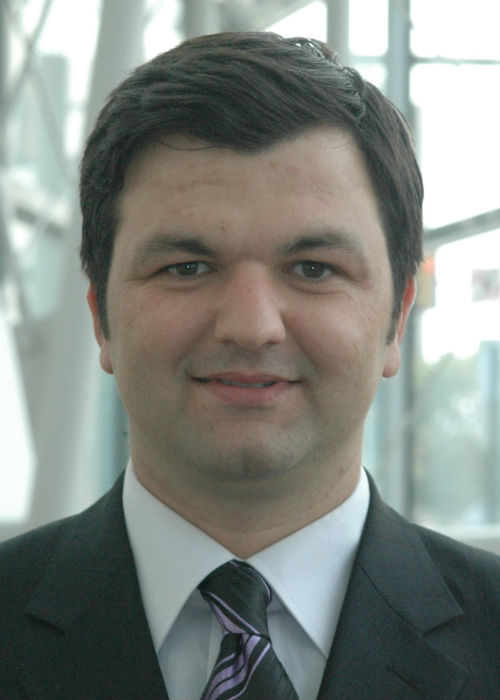Bioengineering Graduate Programs
Our faculty members work closely with clinicians, other engineers and scientists. Many of our projects involve other disciplines — engineering and medicine or engineering and material science. These projects offer opportunities for:
- Creative problem solving
- Entrepreneurship
- Intellectual property generation
Graduate Degrees
- Master of Science in Bioengineering. Three degree options:
- Coursework + thesis
- Coursework + project
- Coursework only
- Doctor of Philosophy in Biomedical Engineering
- Joint program between the College of Engineering and the College of Medicine
- Open to students from all engineering backgrounds
- Entrepreneurial focus. Develop a business plan with a College of Business mentor to commercialize your research discoveries or device designs.
- Doctor of Philosophy in Engineering with a specialization in Bioengineering
- Flexible coursework options to allow for very specific specialization in focused areas
- Includes non-biomedical research areas such as environmental sensors and renewable energy (e.g., biofuels).
Pursue a career as a physician scientist. Medical students with engineering backgrounds can enroll in the dual-degree M.D./Ph.D. in Biomedical Engineering program.
The College of Engineering also offers the following graduate options:
- Online M.S. in engineering with a concentration in general engineering ― A part-time program for working professionals
- Online M.S. in energy engineering ― A part-time program for working professionals
- Master of Cyber security ― Offer a research-based M.S. degree or a course work-based M.C.S. for working professionals
- J.D./M.S.E. Dual Degree ― Designed for law students interesting in pursuing careers in technology-driven fields.
Research
Partner with outstanding faculty. Work with state-of-the-art equipment in all of our laboratories.
Our research on spine and joint mechanics has drawn international attention. Faculty work with industry sponsors in UToledo's NSF-funded Center for Disruptive Musculoskeletal Innovations (CDMI) and the Engineering Center for Orthopaedic Research Excellence (E-CORE), a joint research center with the College of Medicine and Life Science.
In addition, our faculty have broad expertise covering a wide-range of research areas in Bioengineering.
Bioengineering Research Focus Areas
- Cellular and orthopedic biomechanics
- Physiological sensor design and signal processing
- Biomedical instrumentation
- Bio-based products and materials
- Many others
Research and Laboratories
- Biomass Conversion
- Biomedical Optics
- Microfluidics & Biotransport
- Cellular & Tissue Engineering
- Plasma Medicine
- Artificial Intelligence
- Computational Biomechanics
- Spine Biomechanics
- Ultrasound Imaging
Biomedical Engineering Research Focus Areas
- Medical imaging and instrumentation
- Medical device and surgical instrument design
- Biomedical materials
- Cellular and tissue engineering
- Orthopedic biomechanics
Current Research Themes
- Biomechanics and Assistive Technology
- Biophotonics
- Biosensors and Drug Delivery
- Bone Tissue Engineering and Regenerative Medicine
- Microfluidics (Lab-on-a-Chip)
- Artificial Intelligence
- Human Performance Assessment and Wearable Systems
- Computational Biomechanics
- Dynamic and Smart Systems
- Ultrasound
Faculty Center for Materials and Sensor Characterization
Learn to Think Like an Entrepreneur
We don't just develop outstanding mechanical engineers. We develop engineers who create value for their employers by thinking like entrepreneurs. UToledo offers opportunities to commercialize your research and ideas.
Admission Information
- Admission and Program Requirements
- Application Process and Deadlines for Priority Admission/Funding
- Financial Assistance
- Tuition and Fees
- UToledo College of Graduate Studies
Learn more about the city of Toledo and why our students chose the College of Engineering.
Questions?

Contact Dr. Halim Ayan
Graduate Program Director
halim.ayan@utoledo.edu
419.530.8030


